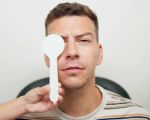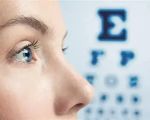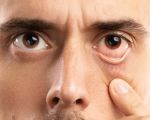- Importance-of-Sleep-for-Eye-Health
- How-Sleep-Affects-Eye-Function-and-Appearance
- Tips-to-Get-Better-Sleep-for-Healthier-Eyes
- Lifestyle-Factors-Impacting-Sleep-and-Eye-Health
- Real-Life-Examples-Demonstrating-Benefits
- Resources-and-Products-from-Eye-Docs
Importance of Sleep for Eye Health
Getting sufficient quality sleep is essential for maintaining healthy eyes. During sleep, the eyes undergo crucial repair and restoration processes that help reduce strain, prevent dryness, and protect against inflammation. Without adequate rest, symptoms like redness, irritation, and blurred vision can develop, affecting both comfort and visual clarity.
Moreover, consistent good sleep supports the body's overall immune function, which in turn helps defend the eyes from infections and long-term damage. Understanding the connection between sleep and eye health encourages adopting habits that promote restful nights.
How Sleep Affects Eye Function and Appearance
Sleep impacts various eye functions, including tear production, which keeps the eyes lubricated and prevents dryness. Insufficient sleep can lead to decreased tear quality, causing discomfort and increasing the risk of dry eye syndrome. Additionally, lack of rest can cause blood vessels in the eyes to dilate, resulting in redness and dark circles that affect appearance.
Restful sleep also enhances the eyes' ability to focus and reduces eye muscle fatigue, which is crucial for activities such as reading, driving, and screen use. Neglecting sleep can impair these functions, leading to headaches and reduced productivity.
Tips to Get Better Sleep for Healthier Eyes
Improving sleep quality involves several practical steps. First, establish a consistent sleep schedule by going to bed and waking up at the same time daily. Creating a dark, quiet, and cool sleeping environment helps signal the body to rest effectively.
Avoiding screens at least an hour before bedtime reduces blue light exposure, which can disrupt melatonin production and delay sleep onset. Relaxation techniques such as gentle eye massages, warm compresses, or breathing exercises can soothe eye strain and promote calmness.
Staying hydrated and limiting caffeine intake in the afternoon also contribute to more restful sleep and healthier eyes upon waking.
Lifestyle Factors Impacting Sleep and Eye Health
Beyond sleep habits, lifestyle choices play a critical role. Regular physical activity improves overall sleep patterns and circulation, benefiting eye health. Balanced nutrition rich in antioxidants like vitamins A, C, and E supports the eyes’ defense mechanisms.
Managing stress through mindfulness or hobbies can prevent sleep disturbances and reduce eye strain caused by tension. Avoiding smoking and excessive alcohol use further protects the delicate tissues of the eyes and promotes restorative sleep.
Real-Life Examples Demonstrating Benefits
Emma, a graphic designer, struggled with dry, irritated eyes and dark circles due to inconsistent sleep caused by work stress. After adopting a regular sleep routine, reducing screen time before bed, and incorporating evening relaxation rituals, she noticed significant improvements in eye comfort and appearance within weeks.
Similarly, Michael, a college student, experienced fewer headaches and improved concentration after prioritizing better sleep hygiene. His clearer vision and reduced eye strain allowed him to perform better academically and enjoy daily activities more fully.
Resources and Products from Eye Docs
For those seeking expert advice and effective products to enhance sleep and eye health, the website Eye Docs offers comprehensive solutions. From blue light blocking glasses to soothing eye masks and specialized supplements, their curated selection supports healthy sleep patterns and eye care.
Accessing trusted resources like Eye Docs empowers individuals to create personalized routines that promote better sleep and maintain vibrant, healthy eyes for years to come.








